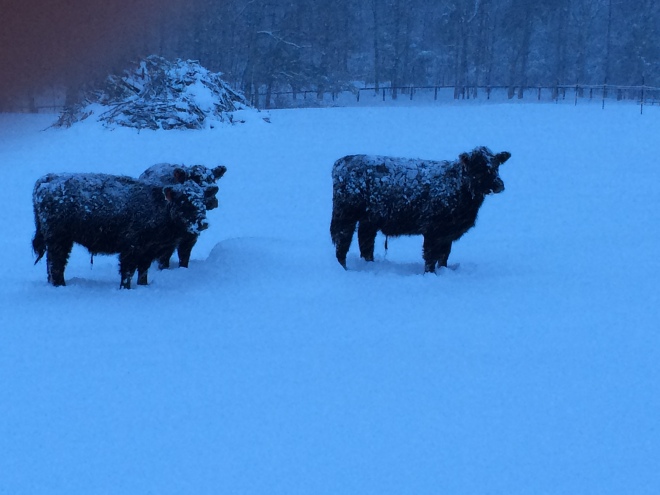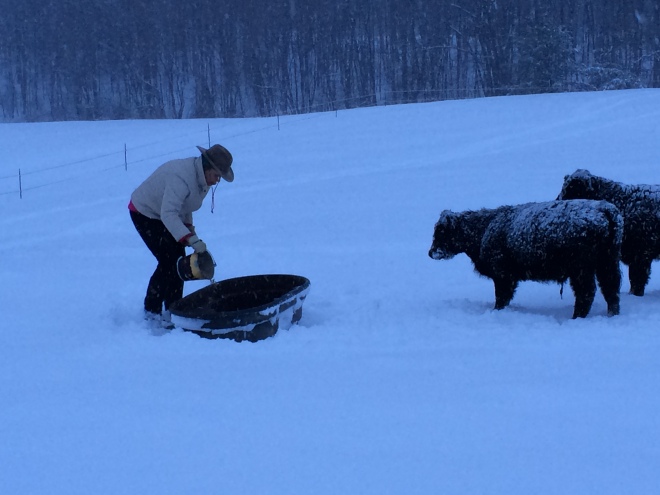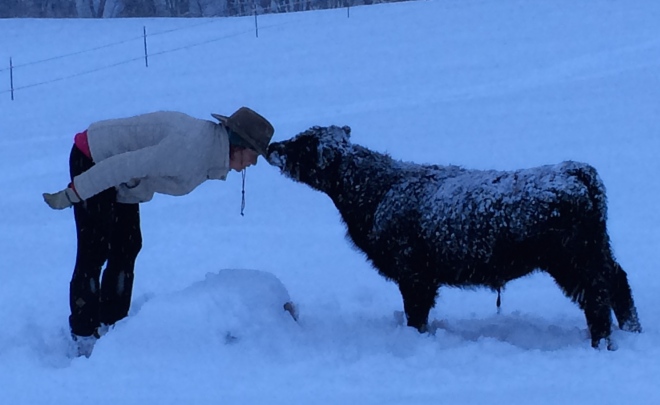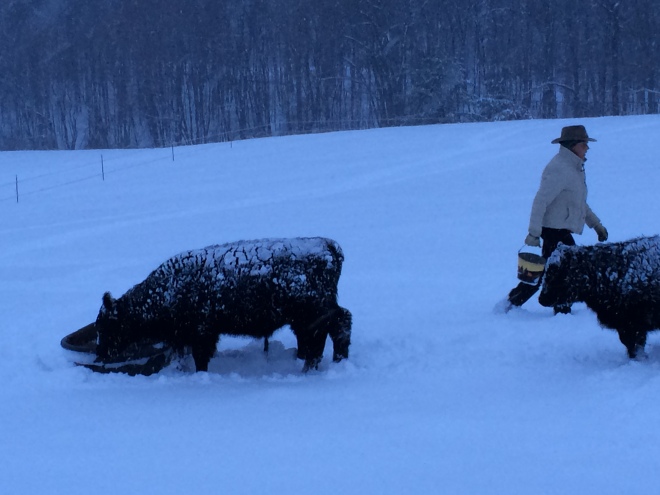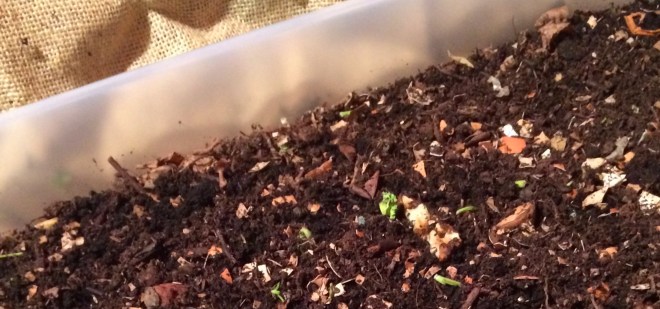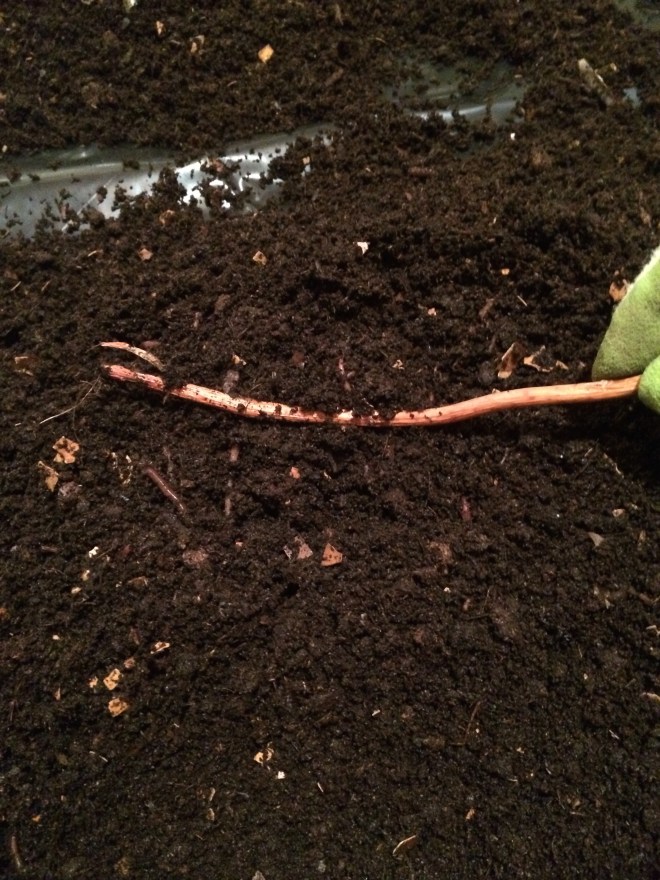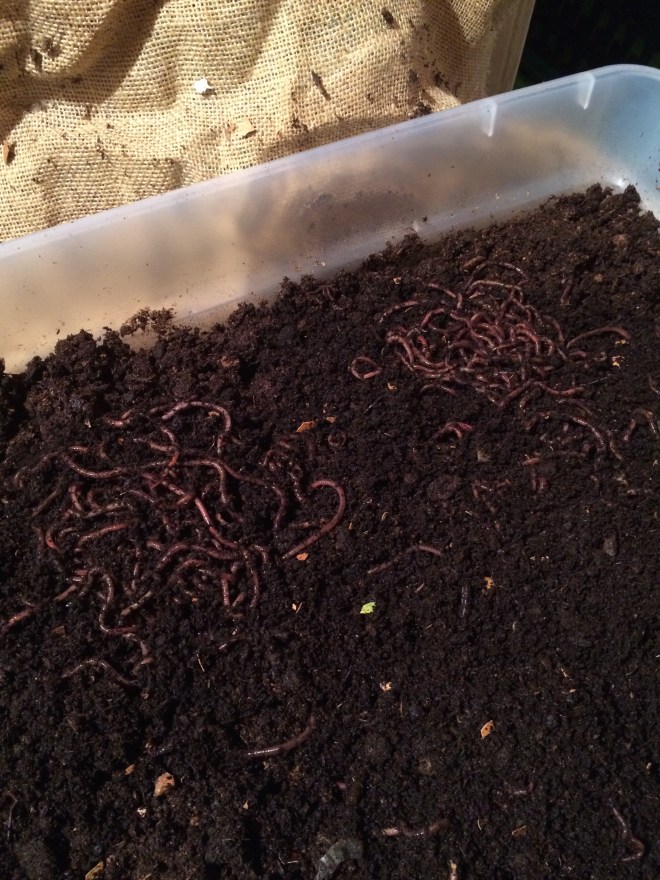But you can’t make him drink’. This old adage is probably known by every horseman around. It has consumed life out here at Blue Rock Horses & Farm over the past nine days. We have been “leading our BR to water” nearly everyday since he choked badly last Tuesday morning while eating his grain.

‘You can lead a horse to water, but you can’t make him drink’. Nor eat for that matter.
Having a senior horse is tricky. Just like the ‘old dog who won’t learn a new trick’, senior horses will not be told what to do! So do a good job of handling your horses before they become seniors. BR was foaled over twenty-nine years ago on Mom’s farm. He has been with us his whole life, and what a good life he has had. This PFO inherited him and three other Littles over two years ago. Retirement has been good to him.

BR & his momma. He was foaled on mom’s farm over 29 years ago.
This past week though has been tough on him. The veterinarian came out three straight days in a row. Dr. Rhode and Dr. Jordan from Clarke Equine Wellness & Performance were professional and polite in handling BR. Their assistant, Tracy, was excellent as well. There is always much to learn from a good vet. The biggest worry was pneumonia. Since he could breath (though it sounded like air going through a water balloon), the first visit was four shots and instructions for this frazzled PFO. A severely choking horse is a fright to see. Stay calm, quiet,and collected in manner and tone. Stay very observant to horse’s condition and actions, which is a huge help when the vet arrives. Know how to take the temperature of the horse, and write it down. Though he has choked before, this time was severe. He was in obvious distress.
The following morning began with no improvement over the saliva draining from both nostrils. Drainage from one side or both sides is another important thing to note to the vet, Dr. Rhode instructed us, as it indicates location of material stuck in throat. The second visit, BR was tubed, and the obstruction flushed down into his stomach. Wow. A remarkable procedure to witness. The doctor described how it was done so well, that the understanding helped with the anxiety. Third visit was more shots, and medications for us to administer in the days following.
So, how is little BR nine days later? Improving steadily everyday. One thing for sure—a horse will eat and drink when he is ready and not before, dang it!!

He is improving steadily.

There are advantageous to getting well—grazing outside of the pastures!




